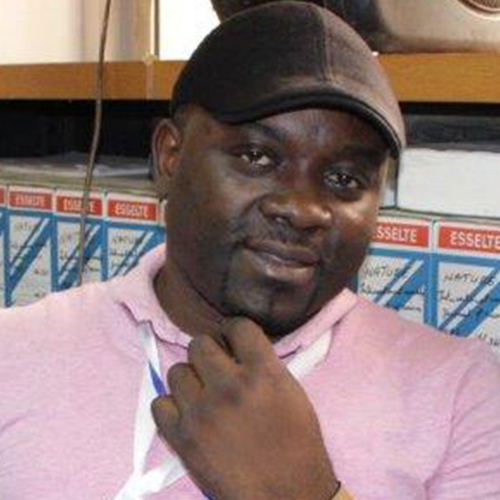
Alfred Amambua-Ngwa
Country (Nationality)
Gambia
Grantee Title
Pan African Malaria Genetic Epidemiology Network (PAMGEN)
Grantee Description
Dr Alfred Amambua-Ngwa is a Senior Scientist and head of Malaria Population Biology Group in the Disease Control and Elimination Programme of Medical Research Council Unit The Gambia (MRCG). Dr Amambua-Ngwa obtained a PhD in Biochemistry from the Biotechnology Unit at the University of Buea, Cameroon in 2004 with a thesis research focus on identifying and characterising proteins associated with pathogenicity and immunity to Onchocerca volvulusinfections. He immediately joined the University of Buea teaching core as an Assistant Lecturer of biochemistry and molecular biology. He received four training awards from the International Programme in the Chemical Sciences (IPICs), developing skills in molecular genetics, recombinant DNA technology, reverse genetics, protein crystallography and bioinformatics at the Universities of Salford (UK), Nottingham (UK) and Lund (Sweden). He established recombinant DNA technology and reverse genetics at the University of Buea, directing the laboratory training of several master’s and PhD students. In 2006, he moved to MRCG to focus on malaria cell biology and population genetics with over 50 publications to his credit. He was the first African scientist to hold the prestigious MRC Career Development Award and is co-Principal investigator in several research and Capacity building programmes in cell biology, genomics and bioinformatics of infectious pathogens. He is a member of the African societies of Biochemistry, Antimicrobial resistance and Human Genetics.
For thousands of years, humans have been adapting to resist malaria parasites. In turn, malaria parasites evolve to evade our immune system and antimalarial drugs. Understanding this deadly evolutionary struggle is crucial to maintain the efficacy of antimalarial drugs, discovering new treatments, and developing effective vaccines.
Pan-African Malaria Genetic Epidemiology Network (PAMGEN) is a team of African scientists studying how genetic changes in humans and malaria parasites impact on the disease in individuals and communities in different ecological environments.
In order to infect humans, malaria parasites need to invade our red blood cells. PAMGEN will examine differences in humans and parasites DNA within particular populations of seven African countries (Gambia, Ghana, Mali, Cameroon, Kenya, Ethiopia and Madagascar). This work involves studying specific parasite ligand genes and receptors on the surface of human red blood cells that malaria parasites exploit during invasion. The network will also investigate potential relationships between genetic differences in all malaria genomes – human, parasite, and mosquito.
Initially, PAMGEN will focus on generating high-quality data that will be shared within the network and the wider scientific community. Ultimately, we will use human, parasite and vector population and functional genomics research to drive the development of new tools to support malaria elimination programmes across Africa.
